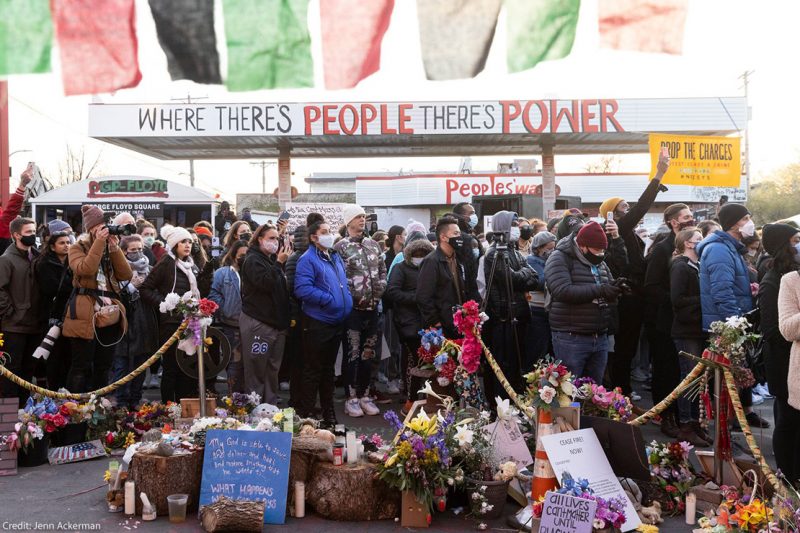Protect People, Not Police Lobbyists


On March 13, 2020, Louisville police officers killed Breonna Taylor, a Black medical worker, during a botched no-knock raid on her apartment. Her death was one of the thousands of police killings that drove the largest protests in American history that spring and summer over policing and racism in the United States. But as demonstrators continued to march in Louisville’s streets, the local Fraternal Order of Police entered into secret negotiations with the city on their next contract, and used that opportunity to lobby for extraordinary protections for officers that would block any meaningful changes to how Louisville approaches public safety.
Unfortunately, this practice isn’t isolated: Nearly half the states in the U.S. have laws granting police special protections from investigation and discipline. And in the 46 states that allow police to collectively bargain, 84 percent of police contracts impose at least one significant barrier to disciplining police and fostering genuine public safety, including granting their lobby undue influence over the department budget and scale.
To truly ensure police do not continue to act with impunity and in order to scale back the role of police in society, we must address the ways that police lobbyists consistently undermine reform efforts at closed-door collective bargaining tables, in state capitols, and in local and state elections. To create and foster the genuine public safety BIPOC communities are demanding, the ACLU is launching a campaign today to expose the lobbying power of police. This campaign will help dismantle the legal and contractual protections from state laws and local contracts granted through police lobbying power that protect officers with special rights from punishments and consequences, and block our ability to generate holistic public safety systems.
This campaign cannot wait. Police violence is an all too common form of homicide in the United States: In 2020 alone, police killed 1,127 people. There were only 18 days that year in which a police officer did not kill someone. Black people are three times more likely to be killed by police than white people. In fact, police violence is a leading cause of death for young Black men in the United States; over the course of their lives, about one in every 1,000 Black men can expect to be killed by police.
While this is far from a new crisis, widespread use of technology to capture and spread footage of police use of force and killings over social media has forced many more people to acknowledge the scope and depravity of police violence. Major media outlets now regularly cover police violence, and advocates loudly demand bold advances in reducing the role, resources, and power of the police.
Police lobby for a status quo that protects them instead of the people, in ways that are extremely problematic and harmful to the communities they purport to serve. When negotiating with city and county officials for local union contracts, police lobby for contract provisions that shield their officers from discipline, allow for police departments to act without any transparency or oversight, and preemptively rule out many of the changes communities are demanding. These contracts can:
- Ensure that a bulk of local funding is dedicated to police, thereby neglecting other critical social services and resources;
- Destroy disciplinary records over time so that no one — including the public and future employers — can discover an officer’s previous misconduct;
- Delay interviews of officers who injured or killed someone so they can “cool off” and restrict how long an officer can be interrogated, who can interrogate them, and the types of questions that can be asked; and
- Give officers unfair access to information while they are under investigation, including body cam footage, statements of witnesses, and other crucial pieces of evidence.
In state capitols, police lobbyists are extraordinarily successful at convincing state legislators to kill bills that would reduce the role and power of police and pass legislation that ties the hands of local officials by codifying statewide discipline-evading provisions through Law Enforcement Officer Bill of Rights (LEOBOR) laws. Their success at securing these protections should come as no surprise. Police lobbyists spend millions each year to influence politicians, then leverage that influence to block efforts to hold the police accountable and rig the system in favor of officers who engage in misconduct.
Police lobbyists exert largely unseen yet enormous power over elected officials and over the state of public safety in the U.S. Enough is enough. It’s far past time to limit the power of police lobbyists to dictate what public safety looks like. Police violence is its own threat to the safety of community members: There is no public safety if we don’t know which cops kill community members, there is no public safety if police are able to keep their jobs after injuring or killing community members, and there is no public safety when police misconduct is nearly impossible to punish. We need to protect people, not police lobbyists.

